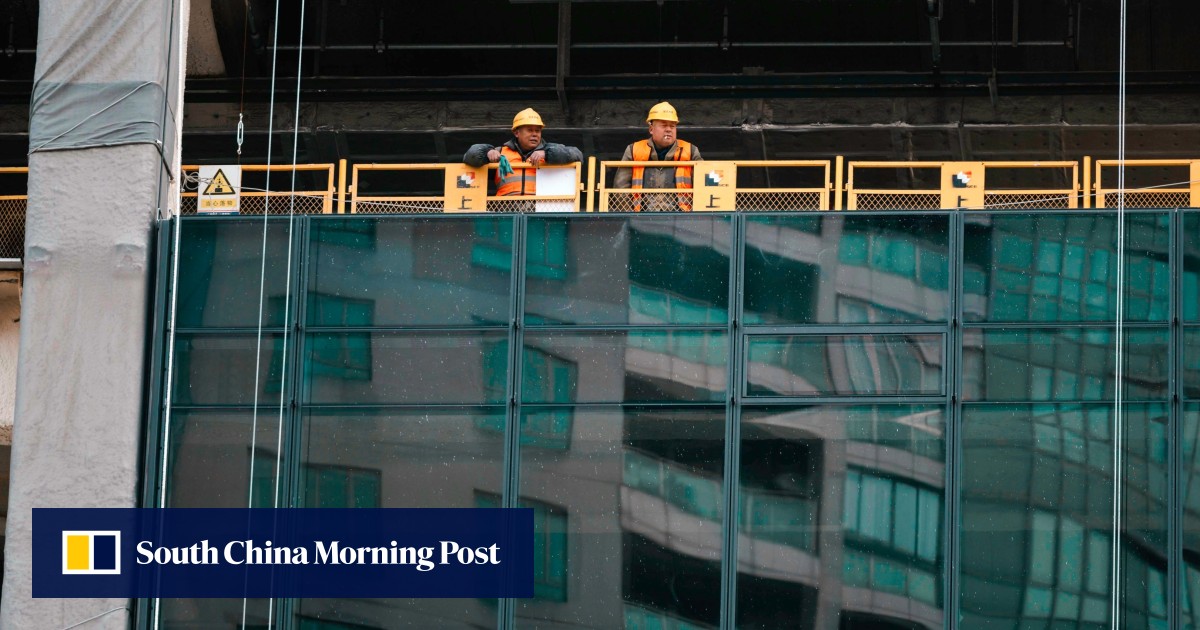And Feng said that is due, in part, to concerns that workers have about losing jobs, making them more likely to jump ship for a mediocre salary rather than hold out for higher-paying work.
Meanwhile, instability in international relations has also led to slashed revenues and subsequent job cuts.
How are China’s young graduates and universities coping with high unemployment?
How are China’s young graduates and universities coping with high unemployment?
“Selling to the US and European markets has become a real challenge … so now companies are left with markets in Southeast Asia and other belt and road countries, but they have limited buying capabilities,” Feng added, referring to economies that have been linked into China’s decade-old trade network, the Belt and Road Initiative.
“The pressure will continue worsening this year,” Feng warned. “There appears to be no apparent solution.”
As the world’s second-largest economy continues to be slammed by headwinds, including from property-sector woes, slumping investment, uncertain export prospects and geopolitical tensions, financially strained firms across the country have been forced to downsize their workforce.
The average monthly salary in 38 major Chinese cities dropped by 1.3 per cent in the fourth quarter of last year, marking the biggest quarterly drop since 2016, according to Zhilian Zhaopin, an online recruitment platform in China.
China’s private sector – accounting for more than 60 per cent of China’s gross domestic product, more than 80 per cent of its urban jobs, and composed of mostly small and medium-sized businesses – has taken the biggest hit.
“The current problem is the large number of private firms going out of business, coupled with a surge in failed entrepreneurial endeavours,” said Cui Ernan, an analyst with Gavekal Dragonomics, a China-facing macroeconomic research firm.
“Those failed start-ups subsequently lead to unemployment, creating a fundamentally unstable employment environment.”
Cui pointed out that the first quarter is on track to worsen compared with last year, as the pressure of the economic slowdown, especially from the nation’s real estate crisis, continues to aggravate markets, and “no sign of stabilising has yet to be seen”.
“As for the subsequent developments, it’s not yet certain if the [job] market can rebound in the second or third quarter,” Cui added. “Regulators have been making significant efforts to stabilise the market, implementing various stimulative measures.
“If the combined effects of these policies yield tangible results, economic stability is not entirely implausible, and there remains a glimmer of hope.”
China’s three-legged race to fend off the 4 D’s of an economic apocalypse
China’s three-legged race to fend off the 4 D’s of an economic apocalypse
To boost demand, more aggressive stimulus measures are needed, Cui said, noting how these could include a broad relaxation of property-purchasing limitations, as well as more extensive monetary and fiscal policies, including further interest rate cuts.
Another knock-on effect of China’s subdued job market is that hiring services have themselves suffered staff cuts and closures.
According to data from Qichacha, one of China’s biggest corporate-database operators, the number of newly established companies offering services related to human resources and headhunting had plunged to 5,800 by the end of last year – way down from 41,200 in 2019 and 25,100 in 2020.
Prospective employees looking for flexible work accounted for 23.2 per cent of all jobseekers in the first quarter of last year – up from 18.6 per cent in the first quarter of 2020, according to Zhilian Zhaopin.
That data corresponds with increasingly popular anecdotal evidence of well-educated graduates working as cabbies and delivery drivers.
“In times of economic uncertainty, as the job market isn’t experiencing a surge in opportunities, individuals facing pressure tend to opt for transitional employment until they can secure a full-time position in their desired field,” said Li Qiang, an executive vice-president with Zhilian Zhaopin.
“In 2024, the job market will face pressure, as people are not only looking to address survival concerns, jobseekers also want satisfactory and well-suited positions.”
Chinese universities vow to target fake graduate job data as outlook worsens
Chinese universities vow to target fake graduate job data as outlook worsens
Although a growing portion of them have said they will opt for more advanced degrees and further studies, thus delaying their entry into the market, those who decide to job hunt might face a reduced appetite for green hands, as troubled companies allocate limited headcounts to experienced workers.
“In the past, new graduates would be offered entry-level positions to be trained and learn, but that’s no longer the case – companies want people who already have the know-how and can offer practical solutions,” Feng said.
Beijing had abruptly stopped releasing China’s youth-unemployment rate in July, following successive months of record highs. From April through June, more than one in five young people were unemployed.
Despite the lower adjusted number, analysts say the underlying problems remain unaddressed in the absence of significant economic improvements and sentiment shifts.
And in the face of intensifying competition at home, combined with a growing trend of Chinese companies going global, more jobseekers are opting to look abroad for work.
According to a report released by talent-recruitment site Liepin late last year, new jobs posted in overseas regions surged by 44.4 per cent in the first half of 2023, compared with the same period in 2022.
At the same time, jobseekers applying for positions overseas also jumped by 92.9 per cent in the first half of last year.
Nearly 30 per cent of those seeking overseas jobs had a graduate degree or above, the report said.

